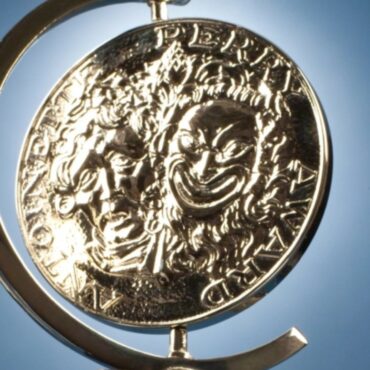chevron_left
-
play_arrow
NGradio So good... like you
Box-Office Meltdown: ‘King Arthur’ Could Lose $150M After Falling on Its Sword

share
close
“The whole ‘Game of Thrones’-on-steroids direction the studio went with from the get-go just didn’t get anyone psyched to see this,” says one anlayst.
For a brief shining moment, anxious executives at Warner Bros. were hopeful that director Guy Ritchie’s King Arthur: Legend of the Sword would open to at least $25 million in North America and overperform overseas, where historical action epics can often conquer audiences.
It wasn’t to be. The dark origins tale about the mythical medieval king fell on its sword at the box office over Mother’s Day weekend, earning just $15.4 million domestically — slightly ahead of Sunday’s $14.7 million estimate — and a dismal $29.1 million from its first 51 foreign markets, including bombing in China with $5 million. While the event film has yet to land in other major territories, including the U.K., the forecast is grim.
King Arthur, starring Charlie Hunnam in the titular role, could lose as much as $150 million for partners Warners and Village Roadshow after costing $175 million to make before a major marketing spend, according to box-office experts who say the movie isn’t likely to earn more than $145 million globally (studios only get half back in box-office receipts in the U.S, and even less overseas). RatPac-Dune Entertainment — the film financing entity launched in 2013 by Steve Mnuchin, who is now U.S. Treasury Secretary, James Packer and filmmaker Brett Ratner — also has a stake in the movie.
A Warners disputed that the loss could climb to $150 million for the various partners.
“King Arthur is a paint-by-numbers Hollywood disaster — wrong director, wrong cast, wrong script, etc.,” says box-office analyst Jeff Bock. “The whole Game of Thrones-on-steroids direction the studio went with from the get-go just didn’t get anyone psyched to see this.”
Bock, along with others, say Hunnam (Sons of Anarchy, Pacific Rim) wasn’t enough of a movie star to carry the film. “TV stardom is one thing; for these epics, you need an equally epic lead performance,” says Bock.
Marking the first major miss of summer 2017, King Arthur also boasts one of the lowest domestic openings of all time for a big-budget major studio title after Monster Trucks, the movie that prompted Paramount to take a $125 million write-down even before debuting to $11 million in January of this year, and Disney’s 2011 Mars Needs Moms ($6.9 million).
“The concept missed,” says Warners domestic distribution chief Goldstein. “We’re very disappointed.”
King Arthur: Legend of the Sword movie unfurls during a time of transition for Warner Bros., where the production regime that oversaw the film’s long road to the big screen has been ousted in favor of new leadership.
In December, longtime New Line chief Toby Emmerich was named president and chief content officer of Warner Bros. Pictures, replacing Greg Silverman, who in turn replaced Jeff Robinov. The shake-up came amid AT&T’s bid to buy parent company Time Warner for $85 billion.
Ritchie had a close relationship with Robinov and Emmerich, having made the Sherlock Holmes franchise and The Man From U.N.C.L.E. The two Sherlock movies, starring Robert Downey Jr., were successful; Man from U.N.C.L.E., not so much.
Ask studio insiders, and they’ll tell you that most were nervous about how King Arthur would perform at the box office after the movie’s release was delayed several times. Medieval-themed movies have lagged at the box office in recent times, including Universal’s 2016 sequel The Huntsman: Winter’s War.
Not to mention that Warners hasn’t had much luck in launching live-action franchises based on fairy tale IPs (leave that to industry leader Disney, whose most recent success is Beauty and the Beast). Like King Arthur, Pan and Jack the Giant Slayer fell flat at the box office.
The coming weeks will be crucial for Warners’ marketing and production team as it launches summer tentpole Wonder Woman on June 2 and Christopher Nolan’s World War II action-epic Dunkirk on July 21.
“It isn’t particularly surprising that King Arthur flopped in North America. I don’t remember the last time a medieval film was successful in this market. The story just doesn’t seem to resonate here anymore and someone tries to resurrect it seemingly every five to 10 years,” says Wall Street analyst of MKM Partners. “What I did find surprising was the weak numbers internationally, particularly in Europe.”
Source: hollywoodreporter.com
Written by: New Generation Radio
Rate it
Similar posts
ΔΗΜΟΦΙΛΗ ΑΡΘΡΑ
COPYRIGHT 2020. NGRADIO




















Post comments (0)